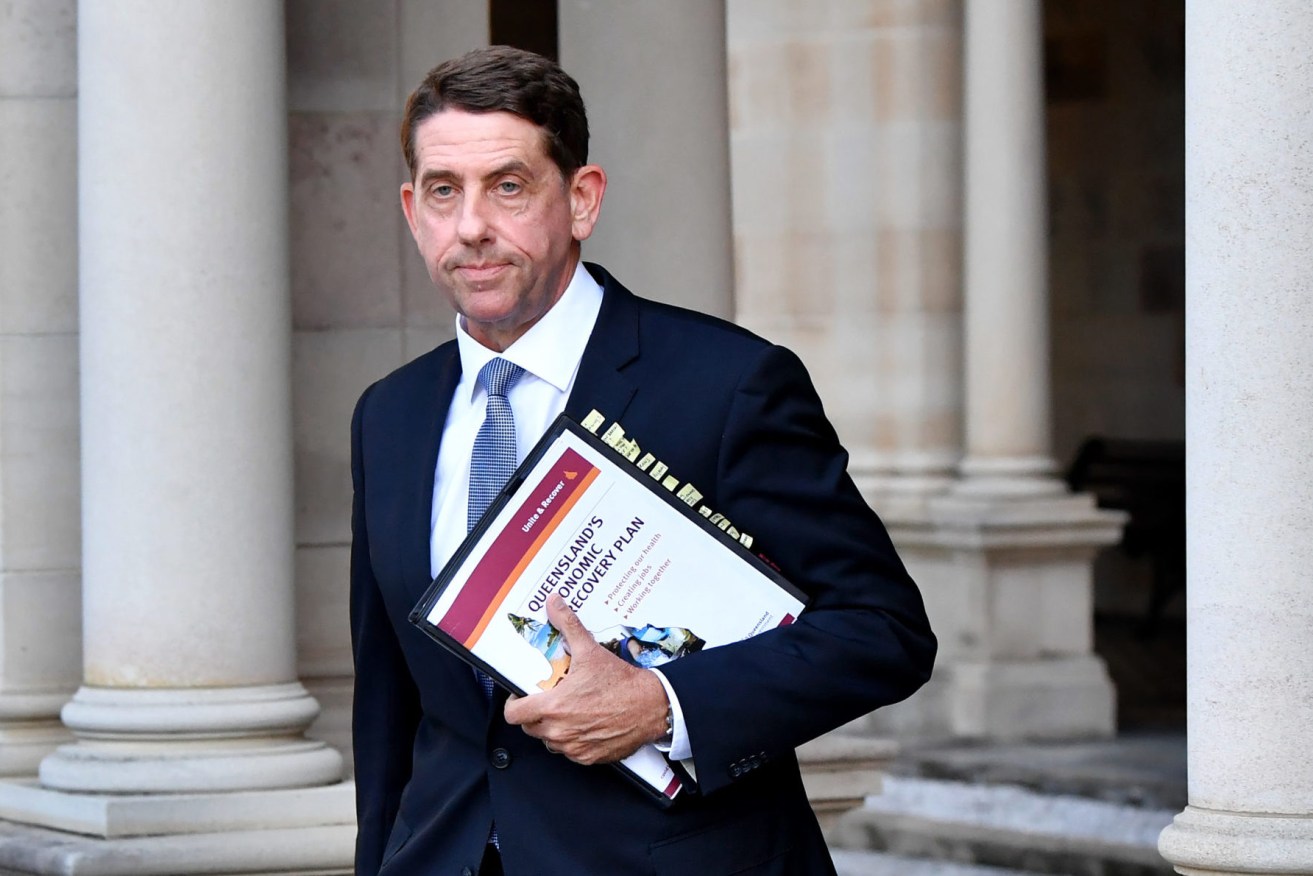Interstate rivalry will see Queensland compete on debt, tax in new budget
Treasurer Cameron Dick believes debt is another area in which Queensland compares favourably to other states.

Treasurer Cameron Dick has delivered his mid-year Budget forecast. (Photo: AAP Image/Darren England)
Handing down his first budget today, delayed due to the pandemic, Dick has foreshadowed borrowings in excess of the $4 billion already outlined to pay for Labor election commitments.
There is speculation that will see overall debt levels soar beyond $120 billion for the first time.
But Dick has been open about his decision to borrow rather than cut services or increase taxes, and used larger Federal Government borrowings as a yardstick and the cuts made by the former Newman government as an alternative.
While the Liberal National Party under Deb Frecklington also promised to borrow and not cut, Labor has portrayed its debt decisions as a political advantage in uncertain times. That is in stark contrast to previous Labor policies to pay down much lower debt levels, and adds to the long-term risks.
The LNP Opposition under David Crisafulli has criticised Labor for planning to borrow more than it foreshadowed in the election campaign, but Premier Annastacia Palaszczuk yesterday added it to the ongoing interstate rivalry.
“Our debt will be a lot, lot, lot lower than NSW and Victoria,” Palaszczuk told reporters.
Today’s budget, to be handed down at 2pm when Dick will address parliament, will show Queensland has maintained its existing level of tax competitiveness with other states and performs better than NSW and Victoria on debt. The rate of population growth is also set to increase now that border restrictions have been eased, which some analysts believe will lift house prices and state inflation.
The budget comes ahead of the release tomorrow of national figures that will show whether Queensland has already technically come out of recession. Dick has said Queensland had added more jobs than have been lost during the pandemic, and unemployment may have already peaked ahead of forecasts. The government’s operating deficit in 2019-20 already proved lower than anticipated.
But no sooner will this budget be delivered, explained, and scrutinised through budget estimates committee hearings, than the government will start working on the 2021-22 budget. That work will begin in February.












